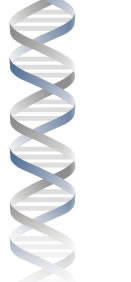
Institutional Biosafety Committee Registration Management System (IBC-RMS) Privacy NoticeProtecting your privacy is very important to us. Our Web site links to the National Institutes of Health (NIH) and Department of Health and Human Services Web sites. Once you leave the IBC-RMS site, you are subject to the privacy policy for the site(s) you are visiting. When visiting the IBC-RMS site, we do not collect any personally identifiable information (PII) about you unless you choose to provide it to us. We do, however, collect some data about your visit to our Web site to help us better understand how the public uses the site and how to make it more helpful. We collect information from visitors who read, browse, and/or download information from our Web site. Types of Information CollectedWhen you browse through any Web site, certain information about your visit can be collected. We automatically collect and temporarily store the following type of information about your visit:
We use this information to measure the number of visitors to our site and to help make our site more useful to visitors. How IBC-RMS Collects InformationIBC-RMS uses Webtrends to collect the information in the bulleted list in the Types of Information Collected section above. Webtrends collect information automatically and continuously. No personally identifiable information is collected. The OBA staff conducts analyses and reports on the aggregated data from Webtrends. The reports are only available to OBA managers, members of the OBA Outreach and Web Teams, and other designated staff who require this information to perform their duties. OBA retains the data from Webtrends as long as needed to support the mission of the IBC-RMS Web site. How IBC-RMS Uses CookiesThe Office of Management and Budget Memo M-10-22, Guidance for Online Use of Web Measurement and Customization Technologies allows Federal agencies to use session and persistent cookies. When you visit any Web site, its server may generate a piece of text known as a "cookie" to place on your computer. The cookie allows the server to "remember" specific information about your visit while you are connected. There are two types of cookies, single session (temporary), and multi-session (persistent). Session cookies last only as long as your Web browser is open. Once you close your browser, the cookie disappears. Persistent cookies are stored on your computer for longer periods. IBC-RMS uses only session cookies for technical purposes such as to enable better navigation through our site. These cookies let our server know that you are continuing a visit to our site. The OMB Memo 10-22 Guidance defines our use of session cookies as "Usage Tier 1--Single Session." The policy says, "This tier encompasses any use of single session web measurement and customization technologies." How Personal Information Is ProtectedYou do not have to give us personal information to visit the IBC-RMS Web site. However, if you choose to request access to the registration system, we collect your name, business address, and email address to complete the registration process. Users of the system will then be asked to provide OBA with the names of each member of the IBC. For certain members of the IBC, business address, and business email address will be required as well. We store your personal information in a record system that will be safeguarded in accordance with the Privacy Act of 1974, as amended (5 U.S.C. Section 552a). Data Retention and Access LimitsNIH will retain data collected using the following technologies long enough to achieve the specified objective for which they were collected. The data generated from these activities falls under the National Archives and Records Administration (NARA) General Records Schedule (GRS) 20-item IC 'Electronic Records,' and will be handled per the requirements of that schedule (http://www.archives.gov/records-mgmt/grs/grs20.html). |
|||
|
|
|||


